|
Tana French is the best contemporary crime writer. As someone who reads only moderately in mysteries/thrillers/suspense, I probably shouldn't be so bold, but she is so dang good, is the thing.
The Searcher is not quite a police procedural, because Cal Hooper is retired from policing. He has moved from Chicago to a smudge on the map in Ireland, wanting to spend his days in easy solitude. This solitude is interrupted by a local teenager whose elder brother has gone missing. Cal finds himself working a missing persons case, though without the benefit of the contemporary tools of law enforcement. French has an uncommonly good prose style. She's an exceptional storyteller with an ear for accents and atmosphere. She creates magnificent characters. As with Tamsyn Muir, she is attractive in photos in addition to being preternaturally talented. This is unacceptable. Do better. Roger Clark was such a good narrator, moving seamlessly between Irish and American accents, to where I couldn't guess his native country. Turns out he was born in America but moved to Ireland. The audiobook is a pleasure.
0 Comments
Observant readers may recall I launched a small business on Tuesday. I'm offering manuscript services and I've already had a consultation with my first client.
I won't bore anyone with the NOLO legal books I've been reading, nor the instructional guides aimed at editors and indexers, but I hope I can persuade some of you to try Dreyer's English. Benjamin Dreyer is more than a droll Twitter personality who posts a lot about early cinema. Apparently he's also an editor. Who knew? Blurbed by people ranging from Lyle Lovett (??) to my man George Saunders, this book dishes out more laughs than you might expect in a book about word usage (though the Humorous Grammar subgenre is bigger than you might expect). "Only godless savages eschew the series comma" is one gem. Another gem offers this advice for structuring sentences, which should "aim for a powerful finale and not simply dribble off like an old man's unhappy micturition," which means what you think it means. It's a quick read, recommended not just for writers and editors but anyone who enjoys words. A version of this post originally appeared on May 13, 2023.
In C. J. Tudor's thriller The Chalk Man, the teenaged narrator and his mates* stumbled upon a gruesome murder in the 1980s. Now an adult, the narrator drinks too much and struggles to fit in. When one of the lads* from his past reappears, claiming to know the identity of the killer, old memories resurface, and a new body is found. This book reminds me of my own thriller, a primary difference being that this one is published and mine is not. Both alternate between the present day and 30ish years ago; both feature mothers turning up alive after everyone thought they were dead; both feature a similar tone and prose style; and both have some squicky scenes designed to make the reader uncomfortable. Plot and action scenes are important to any crime novel, but not every writer makes you care about the characters. A couple of craft observations: first, Tudor uses dream sequences. This is the prerogative of the writer, but it's a risky move, because lots of writers skim right past. Dream sequences can be frustrating because we don't know which details are relevant. Second, when one of the characters is walking around the house at night in socks, Tudor uses the verb "padding" to describe the movement. I never realized how clichéd this is until one of my writer friends pointed it out. Now you too can annoyed when characters pad about. Because this novel reminds me so much of my own, I naturally want to recommend it, with the caveat that there are scenes of physical and sexual violence. *it's set in England. I'm allowed to say that. A version of this post originally appeared on April 29, 2023.
I enjoy the occasional mystery, but I'm no aficionado. That would be my mother. Imagine my surprise when I was able to introduce her to the Inspector Ian Rutledge series, starting with A Test of Wills. After serving in the Great War, the inspector has returned to Scotland Yard, now with a bad case of shell shock. He is haunted by Hamish, a man he killed, though he dare not tell anyone. Societal attitudes toward PTSD in 2023 are still bad, but back then it was tantamount to moral failure and cowardice. Now Rutledge must resume his career with Hamish intruding in his thoughts. Charles Todd (pseudonym for mother/son team Caroline and Charles Todd) knows how to write a British mystery. In the early chapters, Rutledge drives from London to a stately old English manor. He exits the car and notices a curtain twitching on the second floor. You can picture it, can't you? You've seen this a hundred times on the BBC. And the first person Rutledge interviews is a beautiful woman who seems to be keeping secrets. One quibble: occasionally the point-of-view character (usually Rutledge, sometimes others) will see someone's facial expression and deduce a range of precise emotions, something like "her eyes flashed, and he could sense indecision mixed with grief and anger." That's borderline cheating as a way to give information to the POV character. I'm not singling out Charles Todd: loads of authors do this, and it's hardly the gravest sin. Another quibble: on a plausibility scale, where 1 is The Butler Did It and 10 is It Was Aliens, this book comes in at 9. I consulted my mother (who inhaled the whole series within a week) and she says the other mysteries are similarly difficult for the reader to solve. If you're okay with outlandish explanations, there's a whole bunch of books in this series to enjoy. I listened to the first one on audio, narrated by Samuel Gilles. A version of this post originally appeared on April 22, 2023.
A Man Called Ove--written by Fredrik Backman, translated from Swedish to English by Henning Koch, and narrated by J. K. Simmons--lives up to the hype. I hesitated to try this one. Literary fiction is a hit-or-miss genre for me, skewing toward misses. Character studies can show how clever an author is, which is great for workshopping ten pages in your undergraduate fiction class, not so great for a whole novel. I do not have the patience to hear the same chord through an entire symphony. Most of all, I was leery of the facile type of story where a cranky old person is transformed by the power of love and saves Christmas. I have never seen a Hallmark movie but I am confident I'm not their audience. I'm delighted to announce I was wrong. For one thing it's a birthday he saves, not Christmas. What could have been superficial sentiment becomes weighty, thanks to a somber thread. The main character, pronounced OOH-vuh, is determined to take his own life. His wife died six months ago and he just got laid off. This is not a sentence I get to type very often, but: his suicide attempts go hysterically wrong. For a book heavy with death, mourning, loneliness, and rejection, I sure did laugh a lot. One criticism: Backman as storyteller chose to indulge in stereotypes about fat people, where he otherwise showed sensitivity and nuance. One of the secondary characters is fat, and he's always eating, always hungry. Without this fatphobia, it would have been a perfect book. Apart from the lazy stereotyping, I was charmed by this novel. Strong plotting, wonderful characters, emotional depth, and humor that comes not just from the ridiculous situations but from the dryness of the prose. A version of this post originally appeared on April 15, 2023.
Sebene Selassie is among my favorite teachers on 10% Happier, the app I use for mindfulness meditation. A cousin to Robin Wall Kimmerer's Braiding Sweetgrass, You Belong is a mix of meditation guidance, memoir, ethics, and social science (though Selassie reminds us that science is but one way of understanding the world). It's about belonging and how things go to hell when we feel we don't belong, individually and in the larger world. I recommend this one for a couple of reasons. First, it's a good discussion of social justice. Teachings on meditation, spirituality, and religion have the potential to liberate whole swaths of society. These paths of inquiry are not just about improving compassion or tightening your focus or helping regulate your emotions. Second, it's a solid resource for starting or enhancing mindfulness meditation. I've meditated nearly every day for the past four years and I'm still a novice, albeit a novice who's benefited from the practice. I learned a lot, especially about Buddhism. But if you are allergic to mysticism and spirituality, I would instead recommend Meditation for Fidgety Skeptics, the Dan Harris book that first got me meditating. Selassie's voice is like lemonade in July. Audiobook strongly recommended. A version of this post originally appeared on April 8, 2023.
All I knew of The Last Policeman (2012) was that it got a lot of acclaim. Also I figured it for a crime novel. There is a clue for this hypothesis hidden in the title. There's an asteroid coming toward the earth, though it's still several months from impact. Society is collapsing in fits and starts. Lots of people are choosing to check themselves out before impact, but the corpse in the McDonald's bathroom stall seems like a murder, and detective Henry Palace is determined to investigate it, even as the structures of law enforcement (like habeas corpus) disintegrate. I would have enjoyed this book more pre-pandemic, but I no longer need help imagining how people respond to global threat. I'm good. Still though, this is a decent way to spend your time: Police procedural, society under threat, noirish feel, mild science fiction. I especially recommend it for people who like a literary feel to their genre fiction. Peter Berkrot narrates the audio. A version of this post originally appeared on April 1, 2023.
In anticipation of turning 42 next Thursday, I reread The Hitchhiker’s Guide to the Galaxy. As a young teen I found it hysterical, absurd humor mixed with running gags. Douglas Adams hit all the right chords when I was developing my sense of humor, and familiarity with Hitchhiker signified inclusion in a science fiction in-group, back when nerd fandom was more in the margins. It was like recognizing Led Zeppelin’s Lord of the Rings references, back before Peter Jackson made his movies, when obsessively listening to an album was the only way to learn lyrics. Knowing that the answer to life, the universe, and everything was 42 marked you as a special type of nerd. As an adult: the book is still funny. I frequently laughed out loud to Stephen Fry’s audiobook narration. And that’s all. There’s no depth. It’s a diverting story. I would still gladly suggest it for anyone wanting a laugh, especially a younger someone who would enjoy it as much as I did thirty years ago. But if you want speculative fiction with pathos and deep meaning in addition to laughs—well. I need to catch up on the Christopher Moore books I haven’t read yet, for starters. And it sounds like I’m talking myself into a re-read of Terry Pratchett’s Discworld series. A version of this post originally appeared on March 25, 2023.
I read Joe Abercrombie's Shattered Sea trilogy: Half a King, Half the World, and Half a War, capably narrated by John Keating. The books are marketed as grimdark fantasy, and you can tell the setting is an alternative, medievalesque Scandinavia, though more than anything they feel like adventure stories. The pace is go-go-go, and the battles are plentiful. Be prepared for some extremely descriptive scenes of violence, though no sexual violence. Thank you for that, Mr. Abercrombie. Prince Yarvi is prepared to enter the ministry, where he will learn to advise kings, when his father and brother are killed in an ambush. No one is happy about this. Because of a birth defect, Yarvi has only one functional hand. This shouldn't matter. He's a head of state, not a concert pianist. But people are not enlightened in their understanding of disability. Abercrombie's portrayal of disability is unusually good. Yarvi doesn't become a Magical Disabled Person. He doesn't develop special abilities to compensate. His life is much harder, and people treat him poorly. The storytelling is strong, and more than anything, that's what sells books--but there are some places where the prose could have been stronger. I know you guys are sick of hearing me talk about this, but the dialogue tags, I swear. If I took a drink every time someone murmured, I'd have wound up in the emergency room, getting my stomach pumped. There were also a ton of mutterings, mumblings, and growlings. A snarl is an inarticulate noise. It is cool to take poetic license with that occasionally, but if you repeatedly insist on using it as a dialogue tag, it becomes a tic. Instead of: "I'm going to chop your fucking head off," she snarled. go with: "I'm going to chop your fucking head off," she said. Or even better: "I'm going to chop your fucking head off." She raised her axe to his temple. Not everyone gets fussy about overused words (or maybe y'all are just better at tolerating alcohol poisoning) but strong prose craft leads to stronger characters, more emotional depth, and more meaningful plot development. Strong prose supports strong action, and makes you care when a secondary character takes an axe to his temple. Another example: two of the women characters are warriors. To underscore their gender defiance, they are sometimes depicted as picking their noses and doing interesting things with the boogers. This can work once, but only once. Five or six times in a series? That's a bit much. Do it once to make your point, then settle back. But again: these books have strong storytelling with a cast of well developed primary characters, and I have no hesitation recommending them if you're looking for violent, action-packed books that are light on the fantasy and heavy on the political intrigue. A version of this post originally appeared on March 18, 2023.
I've been in a rut, unable to get enthused about speculative fiction without falling back on re-reads. I went hunting for something to scratch that good-vs-evil itch and came up with Sabriel, by Garth Nix, the first in the Abhorsen series. The prologue was so promising. Dark moody setting, mysterious stranger, nefarious creature from the underworld, an infant snatched back from death. I was all set to love the story. Instead I liked it well enough. Sorry to beat this dead Abhorsen, but deviating from "he said" and "she said" in dialogue tags is a turnoff. So much mumbling, so much muttering--and in this book, so much "he continued" and "she replied," which are not usually as distracting, but use them enough times and they become a hangnail for the ear, albeit a Tim Curry hangnail. He's a delightful voice actor. The mysterious stranger from the prologue is single-handedly keeping dead things from overwhelming the kingdom. This is a very important job, and you would think he might consider a backup plan, such as writing down his knowledge and/or communicating lessons to his daughter, who will inherit the job upon his death. He does no such thing, which opens the door for the plot but leaves me irritated. Anyway the daughter, Sabriel, drops out of school to save the kingdom after her necromancer father sorta-dies. I hadn't realized this was young adult, and that's likely another reason I didn't fully dig the story. I don't read much YA. But if you do--and if you are less salty about fancy dialogue tags--this is the first in a series for you to enjoy. |
Book talks
When Covid first hit, I started doing book talks on social media as a way to keep in touch with people. I never got out of the habit. I don't discuss books by my clients, and if I don't like a book, I won't discuss it at all. While I will sometimes focus on craft or offer gentle critical perspectives, as a matter of professional courtesy, I don't trash writers. Unless they're dead. Then the gloves come off. Archives
February 2024
Tags
All
|

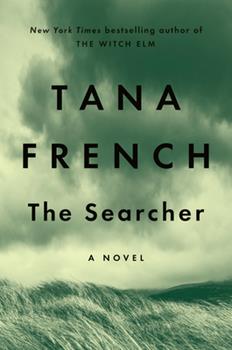
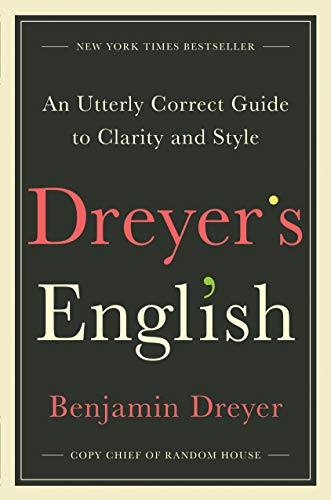
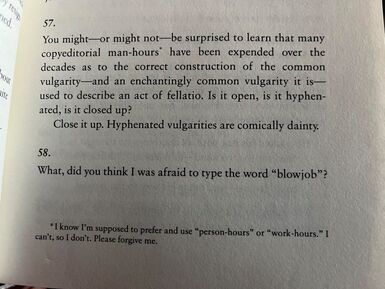
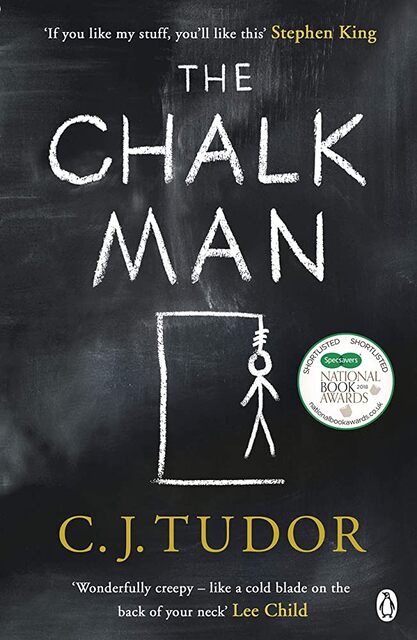
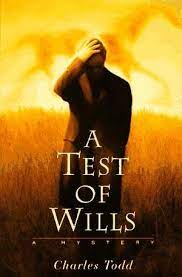
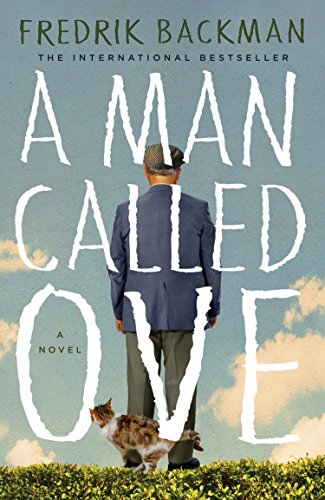
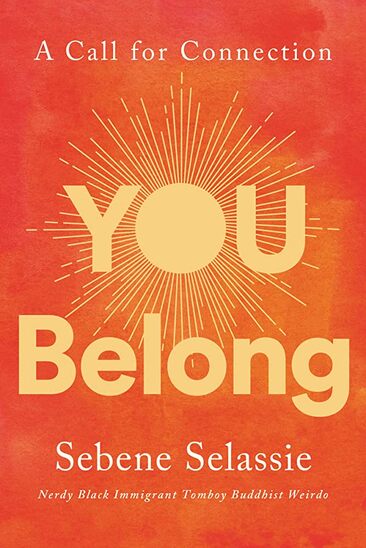
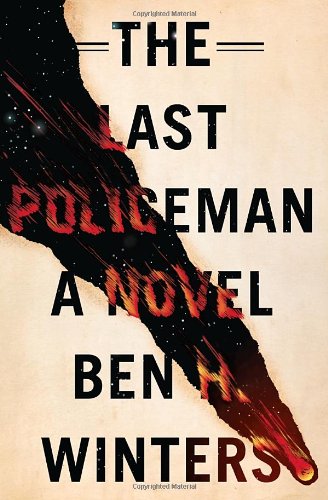
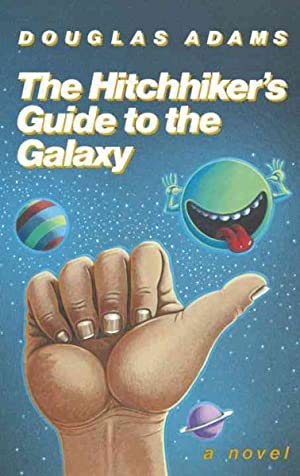
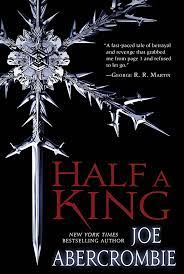
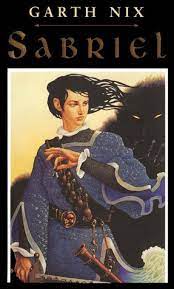
 RSS Feed
RSS Feed